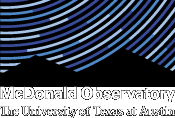First Images from JWST’s Largest General Observer Program
The first images from the largest program in the James Webb Space Telescope’s first year show many types of galaxies, including dazzling examples of spiral galaxies, gravitational lensing and evidence of galaxy mergers. Scientists from the COSMOS-Web program released mosaic images taken in early January by JWST’s Near-Infrared Camera (NIRCam) and Mid-Infrared Instrument (MIRI).

